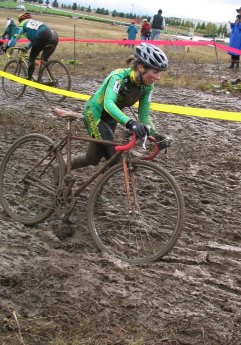The Ever Shifting Paradigm of Athletic Training
Posted by Matt Russ for Active.com on 28th Oct 2016
Human beings are creatures of habit, and it is often hard to adapt or change them. The training process is not immune to habitual responses, especially if a certain type of training has worked well in the past. But the truth is that training needs to be a fluid, adaptable, and creative process or progress will stagnate. This is one reason why “one size fits all” plans often are not effective for the individual athlete.
The key point is that an energy system or fitness substrate reaches a plateau after it has had been trained for an extended period of time. For instance, performing low aerobic base training all season long, season after season, will offer little chance for speed to increase. This type of training does have a very important place in the developmental process, especially for an athlete new to endurance sports, but only advances aerobic energy systems and pathways. By completely ignoring higher intensity training, opportunity is lost.
This is where periodization comes in-- hitting the athlete with the right type of training at the right time for their individual needs. A carefully constructed annual training plan that delineates the targeted fitness substrates can be the difference between a breakthrough season and another lackluster one.
But even a successful athlete gradually moves towards the “glass ceiling’ of their physiological limiters season after season. It takes a progressively more creative training process to address these limiters and squeeze more speed out of an already fast athlete. It is important to recognize what has worked in the past, but also to look for new angles to try moving forward. This means reviewing training not just on an annual basis but over the athlete’s lifetime. It may be hard to leave one type of training alone for a while as new areas of opportunity are discovered, but this is precisely what is required. The body adapts relatively quickly and only by keeping it off-balance does adaptation continue to occur.
Opportunity does not just come in the form of physiological stress/recovery. Economy of movement is often overlooked due to the technical expertise involved. For instance, a runner may be highly developed physically but will not get to the “next” level until braking forces are addressed in their stride mechanics. Pacing and race execution can lop of big chunks of time, as will a better nutrition and hydration strategy. Mental skills play an incredibly important role in success, as does a training plan that balances life stress with physical stress. The faster an athlete is able to cycle, the more position and equipment selection plays a role. Peripheral training such as strength/power or injury prevention for the chronically injured athlete may be the difference between a lost season for a highly conditioned and tuned athlete. There are numerous factors that must come together in order for an athlete to reach their true potential, but athletes can become resistant to change. Coaches tend to focus too much on the training plan, which in and of itself must be adaptable to the athlete, sometimes on a daily basis.
Step one is to have a good plan, execute on it, and then evaluate progress. Shifting the training paradigm does not mean constantly changing short term objectives or second guessing your training. Headway comes in slow, gradual, and progressively smaller increments if everything is done correctly-- and you must stay the course. However, it is important not to become mired in habit over the long term. Realize that training is a highly individualized process that must address your particular limiters or it will not be effective. What has worked for athlete “x” may not work for you. Once you have reached a plateau and you are scratching your head it is time to mix things up or seek professional guidance and perspective. Your best race may still be in front of you but the path to that next PR is no longer clear. Training is both an art and a science and creativity can not be underestimated.
Matt Russ is a full time professional coach with over two decades of experience working with athletes up to the professional level. His athletes have achieved numerous regional, national, and international titles under his direction. Matt has achieved the highest level of licensing by both USA Triathlon and USA Cycling, and is a licensed USA Track and Field Coach. His accomplishments include being named "Team USA" Coach by USA Triathlon. Matt is Head Coach and owner of The Sport Factory, a USA Triathlon Certified Performance Center located in Roswell, Georgia. Visit www.sportfactory.com for more information or email him at coachmatt@sportfactory.com



